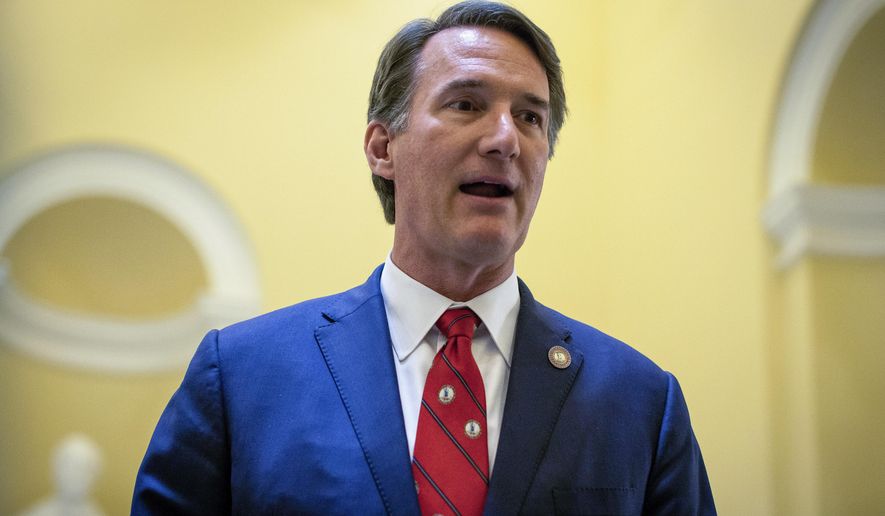Students at George Mason University are protesting the school’s decision to have Virginia Gov. Glenn Youngkin deliver a commencement address over his stance on transgender issues.
More than 7,000 individuals at the university in Fairfax have signed a petition to disinvite Mr. Youngkin from the school’s May graduation ceremony.
“I and my peers do not want the memories of our graduation day to be tainted by an individual who has harmed and continues to harm the people he serves,” student Alaina Ruffin wrote in a petition.
While some of those signing the petition are students at the Fairfax university, a large number are also out-of-state activists. Overall, roughly 100 students on campus have participated in protests against Mr. Youngkin’s commencement address.
Mr. Youngkin has come under fire from progressive activists for championing policies requiring parental signoff before children can use names or pronouns that differ from those listed on their official educational records.
The Republican governor also has backed new education guidelines requiring students to use bathrooms and play for sports teams that correspond to their biological gender.
Mr. Youngkin won the governorship in 2021 after most political strategists had said the increasingly Democrat-leaning state was out of reach for Republicans. Mr. Youngkin emphasized in his campaign strengthening parents’ rights in the education system.
The governor has said his policy on transgender issues is an extension of those campaign promises.
“Children don’t belong to the state. They belong to families,” Mr. Youngkin said during a recent CNN town hall. “And so, in these most important decisions, step one has to be to engage parents, not to the exclusion of a trusted teacher or an adviser, but to make sure that parents are involved in their children’s lives.”
The viewpoint is not shared with some George Mason students. The fate of his commencement address, however, is not in the hands of students but the school’s administration.
“I support those students who are making their voices heard, and I applaud their courage and commitment to advocate for themselves and their communities,” university President Greg Washington said. “That being said, I don’t believe that we should silence the voices of those with whom we disagree, especially in this forum where there is no imminent threat present as a result of the disagreements.”
• Haris Alic can be reached at halic@washingtontimes.com.




Please read our comment policy before commenting.